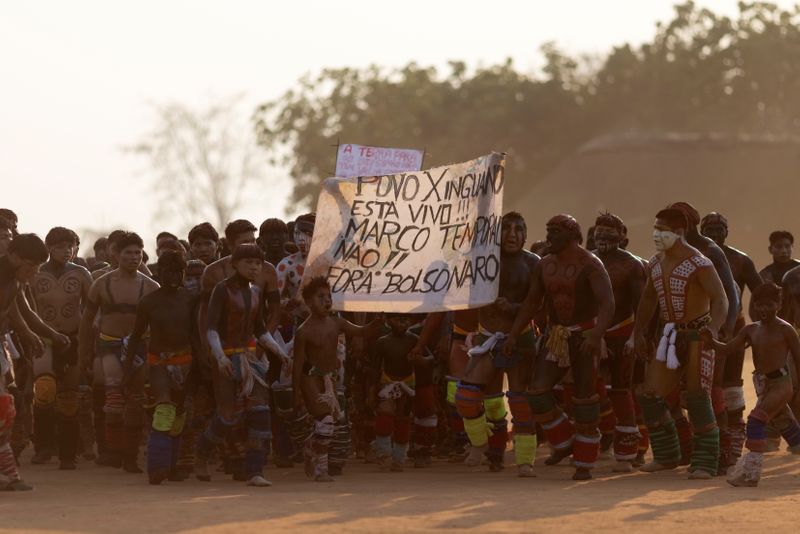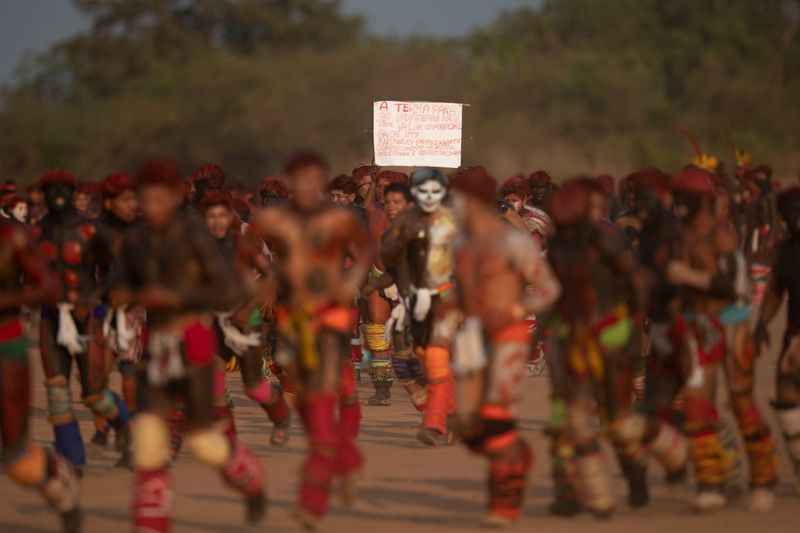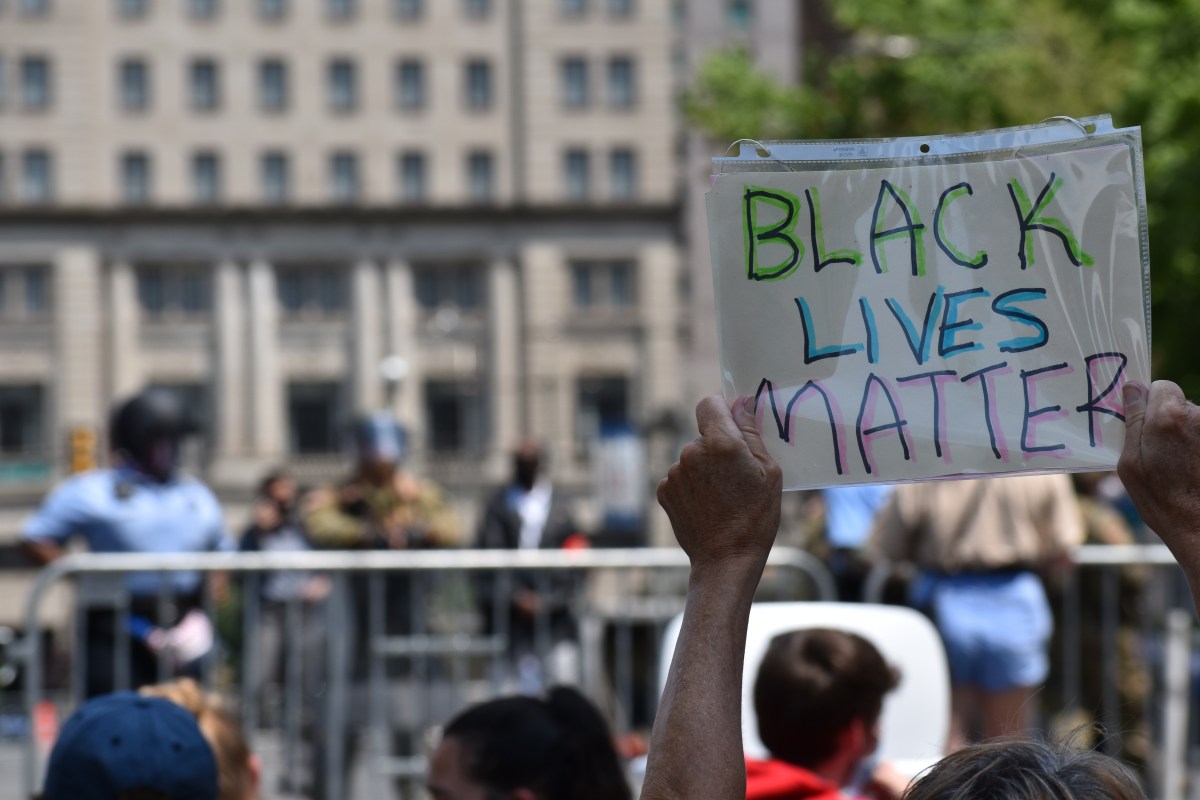BRASILIA (Reuters) – Violence against Brazil’s indigenous people increased last year as land disputes and invasions of their reservations rose and the government failed to provide protection, the Catholic Church’s Indigenous Missionary Council said on Thursday.
Its annual report on violence against the descendents of Brazil’s original inhabitants said there were 182 murders of indigenous people in 2020, compared to 113 murders in 2019, a 61% surge.
There were 263 reported land invasions, an “alarming” increase of 137% over incursions on indigenous territory the previous year.
The report blamed the government for failing to protect indigenous communities, while pushing legislation that would open their reservations to commercial mining, oil and gas exploration and the building of hydroelectric dams.
Brazilian President Jair Bolsonaro, who once praised U.S. Army cavalry colonel George Armstrong Custer for clearing the prairies of indigenous people, has criticized reservations for occupying valuable land and has said he will not grant another inch of land claimed by indigenous communities. He is backed by powerful farm interests.
Critics say his comments have emboldened illegal miners, squatters, and loggers, whose invasions of reservation territories have exacerbated the spread of the coronavirus. Over 800 indigenous people have died from COVID-19, according to official figures that only count deaths on reservations and not among indigenous people in Brazil’s cities.
Their land claims have been paralyzed. Of the 1,289 reservations in Brazil, 832 are waiting for official recognition.
The second year of Bolsonaro’s government saw “the deepening of an extremely worrying scenario in terms of indigenous rights, territories and lives,” the report said.
The presidency did not immediately respond to a request for comment.
Brazil has a population of 900,000 indigenous people, of which one third have moved off reservations to urban areas.
(Reporting by Anthony Boadle, Editing by Rosalba O’Brien)






















